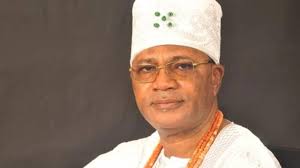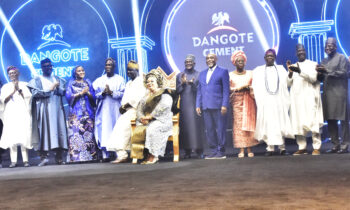

There is no doubt that a lot of benefits await Nigeria with her signing of the African Continental Free Trade Area (AfCFTA), but the challenge would be getting these benefits as they will be predicated on proper groundwork, and having in place the enabling environment for the country’s manufacturers to compete very well against other manufacturing concerns coming to the country to sell their wares. Otherwise, Nigeria would be just an onlooker.
AfCTA is expected to create a trade bloc of 1.2 billion people with a combined gross domestic product (GDP) of more than $2 trillion. The agreement commits countries to removing tariffs on 90% of goods and to liberalize services.
In 2020, Nigeria ratified its bid to join the organization with hopes of deriving benefits. However, persistent macroeconomic headwinds that have remained a challenge in the country may scuttle its chances of leveraging AfCFTA. With the myriad of challenges the Nigerian economy is currently facing, it is going to be an uphill task for Nigeria and Nigerians to benefit maximally from this project.
It has been estimated that at least 96 products will be traded under the Guided Trade Initiatives( GTI) and the initiative will be reviewed annually to expand the list of countries.
Currently, Nigeria is being hamstrung by weak competitive ability, which is a major impediment to trading under AfCFTA. The country is facing an increasingly high cost of production occasioned by infrastructural deficiency, exorbitant energy cost prices, high cost of borrowing, inadequate allocation of funds for credit for private sector investment, and insecurity as some of the factors exporting manufacturers.
Other things identified by exporters as impediments to trade under AfCFTA include an absence of deliberate and timely incentive offers, regulatory bottlenecks from within the domestic economy, trade facilitation problems, high cost of logistics between Nigeria and other state parties and technical barriers to trade such as weight, size, packaging, ingredients, mandatory labelling, shelf-life conditions, testing and certification procedures
The president of the Manufacturers Association of Nigeria MAN), Francis Meshioye at the pre-press conference heralding the staging of the 51st AGM, disclosed to journalists that the Theme of the conference and exhibition – ‘Setting the Agenda for Competitive Manufacturing Under the AFCFTA: What Nigeria Needs to do’ was couched with a deep reflection over the growth trajectory of the manufacturing sector in Nigeria and Africa.
According to him, the 51st Annual General Meeting from October 17 to 19, 2023 in Lagos, focused on the role of the manufacturing sector in the actualisation of the African Continental Free Trade Area Agreement and the integration of the African economy as envisioned in the Agenda 2063: ‘The Africa we want’.
He lamented: “Currently, the cost of manufacturing is daily rising owing to scarce and unavailable manufacturing inputs that continue to shrink profitability and threaten the existence of the critical sector of the economy”
The MAN boss stated that what is more worrisome is the fact that the sector that should propel job creation, productivity, and economic growth is enmeshed with a series of challenges that constantly limit its contribution to the Gross Domestic Product.
He re-echoed again and emphasized the negative implications these challenges are having on the manufacturing sector. “These challenges as epileptic power supply, insecurity, inadequate infrastructure, shortage of forex and naira depreciation are prevailing issues that are impacting negatively on the sector.”
He added: “If Nigeria manufacturers will compete effectively, then a comprehensive and concerted effort needs to be deployed by the government to overtake the binding constraints that limit local production and then seek to attract foreign investment that will bring about a reduction in the forex chase and ensure sufficient forex inflow that the country requires.”
With the coming of the regime of President Ahmed Tinubu, it is pertinent that all hands must be on deck to achieve a vibrant economy that can compete favourably with other economies.
For Nigeria to derive maximum benefits from AFCTFA, the government needs to prioritise investment in infrastructure, power, combat insecurity, and corruption as well as introduce incentive policies that would make domestic production more attractive than the importation of finished products.
It is also important that the AfCFTA window should be maximised in such a way that products manufactured in Nigeria would be preferred in terms of quality and pricing.
Until Nigeria addresses the binding constraints that make the local products uncompetitive, the benefit of a continental market might end up being a mirage for the largest economy in Africa.
The MAN helmsman however assures that even in the face of all these challenges, Nigeria’s manufacturers are resilient and committed to a collaborative advocacy approach as the country strives towards the attainment of practical ease in doing business. He stated that MAN seeks an atmosphere that supports favourable competition, with its counterparts in other countries, particularly within the continent.
Olusegun Aganga, former minister of Industry, Trade and Investment commenting on the subject at the MAN 51st AGM urged the Federal Government to agree on a vision for Nigeria’s industrialisation and follow it up with soundly articulated policy and plan for its implementation to enable the country to benefit from the emerging African Continental Free Trade Area (AfCFTA) market where manufacturing would be the dominant deciding factor.
Aganga said: “Nigeria must act decisively and quickly. It must begin now do the following: Agree on a vision for industrialisation with targets that the whole country will buy into. Develop a policy and plan of implementation.
“The Nigeria Industrial Revolution Plan (NIRP), which MAN helped develop is a good starting point. Let me remind you what NIRP set out to achieve: to make Nigeria a top 10 global player in at least 10 key manufacturing categories within the next five to 10 years. This was the vision and we thought it was realistic then as we do now.”
He added: “AfCFTA is situated within the context of Africa Agenda 2063, also known as ‘The Africa We Want.’ Africa Agenda 2063 is a strategic framework developed by the African Union (AU) to guide the continent’s development over the next five decades, from 2013 to 2063.
“Manufacturing plays a central role in the realisation of this Agenda. It is seen as a key driver of economic transformation and industrialisation, capable of generating employment, fostering intra-African trade, technological advancement and the reduction of poverty.
“The emphasis on manufacturing in both the AfCFTA and Agenda 2063 is not surprising given that the manufacturing sector accounts for about 70 percent of global trade and about 30 percent to 55 percent of service jobs are related to the manufacturing sector.”
According to him, it is important to make it clear from the outset that in the modern global economy, industrial development is not luck but the outcome of a nation’s deliberate choice.
“Countries must, therefore, have an intentional, precise, and intense approach to nurturing and expanding Industrial activities. This is even more paramount for a country like Nigeria, starting from a relatively low manufacturing base,” Aganga said.
He said that in setting the agenda for Nigeria’s competitive manufacturing, he would like to direct the country’s attention to how China metamorphosed into a global manufacturing giant.
“So, I will focus on China because there are many lessons to be harvested from there. We do not need to reinvent the wheel. Over the years, China has implemented various strategies to make its products competitive in Asia and the global market. Some key factors that have contributed to China’s competitiveness include investment in education and skills development, heavy Investment in economic and trade-related infrastructure, and the establishment of Special Economic Zones (SEZs) such as Shenzhen and Pudong with adequate infrastructure. They also offered incentives to attract foreign investors and multinational corporations to set up manufacturing facilities in the country, ”he said.
He stated that Nigeria should borrow a leaf from China that, “identified and supported strategic industries that were critical for its industrial development and provided financial incentives, subsidies, and support to those industries to promote growth, exports and competitiveness.”
He added that China also “encouraged technology transfer by collaborating with foreign companies, universities, and research institutions” and “adopted flexible and adaptable Manufacturing to meet the different market demands” while it “entered into various bilateral and regional trade agreements with various countries, providing easier access to international markets for its goods. For example, China already has trade agreements with several African countries and regional organisations including South Africa – a member of BRICs, Angola, Ethiopia – a key partner in China’s Belt and Road Initiative (BRI), Kenya, Egypt, and Algeria to mention a few.”
Aganga highlighted in his lecture that embracing competitive manufacturing under the AfCFTA would be crucial for Nigeria’s economic growth and integration into the global marketplace.
“Nigeria may not be able to compete with China now but by investing in infrastructure, innovation and skilled labour while addressing trade barriers, the business environment and promoting market access, Nigeria can certainly position itself as the manufacturing hub in Africa.
“We must continuously monitor and evaluate our progress, making necessary adjustments along the way. The road to competitive manufacturing under the AFCFTA may be challenging, but with dedication, determination, and adaptability, we can pave the way for a thriving Nigerian manufacturing sector and a prosperous nation,” he concluded.
The government must put its acts together and ensure that there is an enabling environment for Nigeria’s manufacturing concerns to have enough confidence to carry out their activities and compete very well.





